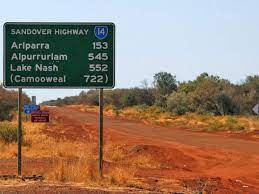 |
| Pic courtesy NT Air Services |
No doubt, gentle reader, you've been reading and hearing about the proposal to insert in our Australian constitution reference to an indigenous voice to parliament.
You've also, undoubtedly witnessed objections to the proposal voiced (excuse the pun) by people usually labelled "Conservatives".
Their objection is the alleged lack of information about the proposal.
Frankly, it's a very simple proposition - that the elected parliament listens, and when that parliament has formed legislation as a consequence of the usual numbers on the floors of both houses, legislation as a response will follow. The content of those legislative responses will obviously depend on what the Voice recommends.
For the last two hundred plus years, the situation of indigenous communities has not improved. This situation is starkly obvious when you check the statistics.
There are a complex range of reasons for this, but labelling our indigenous brothers as a primitive hunter-gatherer society, one typical Conservative response, is unhelpful. Our ancestors at the time were not exactly paragons of civilized virtue. One thing I learned, when heading up Aboriginal and Torres Strait Islander educational programmes for five years in Northwest Queensland is that non-indigenous Australians don't really know how to listen.
Don't get me wrong, there is no shortage of good intentions in the full range of bureaucracies tasked with helping these communities, but frankly, these well intentioned people don't have a clue. Back in 1992, I was one of them.
I embarked on a very steep learning curve, and one thing I did learn was that listening was essential but neglected. There was no mechanism in the education departmental structures facilitating a process where members of those communities provided advice to the public servants implementing what were expensive programmes.
We set up a group in the Northwest which met on a monthly basis in the various communities in the educational region, and these committees, made up mostly of elders, and mostly of women, examined project proposals put forward by the school sector in these communities, and funded them in order of merit.
The communities involved were Boulia, Bedourie, Birdsville, Longreach, Dajarra, Urandangie, Camooweal, and Mount Isa. I was often surprised at the order of merit set up by the NATSIEP* group. It was very different from what I considered appropriate, but the group was usually vindicated at the end of the reporting period when we looked at the results.
On one occasion, we had a problem of kids coming and going across the Territory border following funerals and the usual east-west travel patterns. One of the elders suggested we meet with the NT authorities in Alpurrurulam, across the border.
This involved meeting with the Territory people in an old (fortunately air-conditioned) railway carriage at Alpurrurulam, and thrashing out the details. One of the people in the Territory group was Tracker Tilmouth. Because of his name I asked him if he was related to Charlie Tilmouth from my rifle section in 7RAR. It was then that he broke the sad news to me that Colin (Charlie we called him) was his cousin and had died in 1990. Charlie had been RTA'd on 28th April 1970 after being seriously wounded in our bunker contact on 22nd April.
 |
| Charlie (Bruce Ravenscroft on left) in 1970 |
After my experience in the Northwest, it is abundantly clear to me that we need to listen. This notion, of course, turns over two hundred years of interaction on its head, and I reckon this is the problem for the Conservatives.
I often wonder what Charlie's opinion would have been.
*National Aboriginal and Torres Strait Indigenous Educational Programme
Comments closed.



